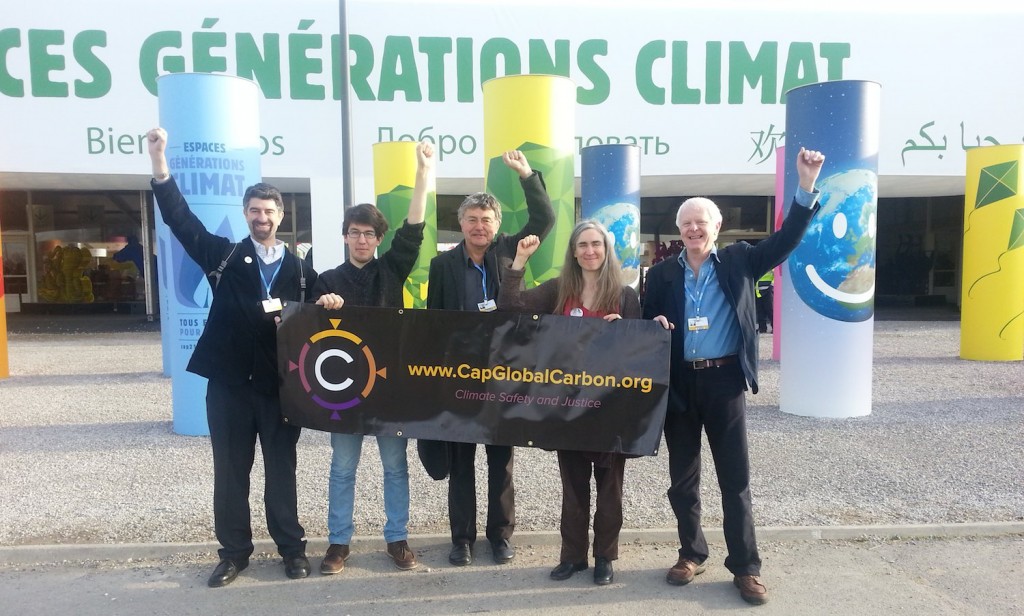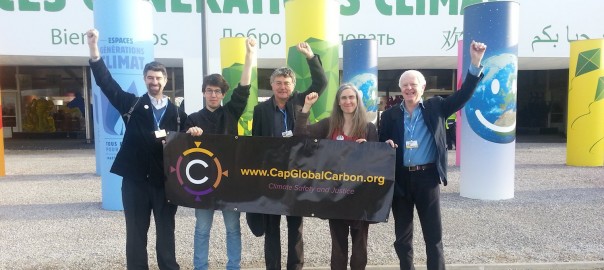This December the COP21 will take place in Paris. This will be the 21st international attempt under this banner to address environmental problems. Why has this international approach been unsuccessful in sufficiently addressing climate change so far?
The IPCC and the UNFCCC framework
There are several aspects that make the current system of international collaboration to address climate change an unnecessarily troublesome process. The first being that to fully address the problem 170 wildly different countries with completely different cultures have to agree with each other. There are many geo-political tensions and international conflicts between nation-states that have nothing to do with climate change but negatively impact the negotiation process. The climate-related conflicts, which can be expected to increase if we keep failing to address climate change, make the process of finding common ground increasingly unlikely. This is a structural problem with regard to how the climate negotiations are set up: they require countries to agree with each other. Nation-states are more likely to agree with an independent organisation than another government whom they regard as their enemy or competitor. In fact they only have to decide whether they agree on the mechanism to sufficiently address climate change, not whether they agree with what all the other countries are or aren’t doing. This is a fundamental difference between the CapGlobalCarbon approach and the IPCC approach.
Currently the climate change negotiations have a strong geopolitical component, making one of the most critical threats to humanity part of the unstable and unreliable power games of nation-states. Leaders do not, and are not expected, to behave in the interest of humanity as a whole. They are, at best, assumed to represent the inhabitants of a limited subset of humanity determined by the borders of their country. We need a system that allows leaders of nation states to do what they need to do; what is best for their own inhabitants.
Not only is the current process ill equipped to deal with the urgent problem of halting climate change, the focus of the negotiations is wrong. The aim is to regulate the emissions of CO2, which is an incredibly difficult thing to do as the burning of fossil fuels is a diffuse process. The extraction of fossil fuels is the elephant in the room, currently only addressed by the activists of the #keepitintheground campaign and by the divestment movement. The carbon bubble is regarded as a free-market phenomenon which investors have to be wary about, not something the IPCC or UNFCCC should actively be involved in regulating. Not only is the current way of addressing climate change ineffective, it is ineffective at addressing the wrong thing.
Many have put their hopes on the COP21 being successful. It is astounding to realise that the international community has failed 20 times to sufficiently address climate change. For how long do we have to keep telling ourselves that it all will be different this time around? We believe that the stakes are simply too high to put all our eggs in the same basket. A safeguard or a backup is needed, just in case the COP fails again.
The aim of CapGlobalCarbon is not to replace or discredit the IPCC or UNFCCC. CapGlobalCarbon would, when implemented, not interfere with the negotiation process and is intended to be complementary to the existing efforts to protect the Earth’s climate. Having a transparent, equitable and fair mechanism to address the carbon budget will free up time and resources for institutions such as the IPCC to address adaptation, damage & loss and sustainable development.
The UNFCCC treaty was initiated at the Earth Summit in Rio in 1992. The aim of this treaty is to “stabilize greenhouse gas concentrations in the atmosphere at a level that would prevent dangerous anthropogenic [i.e., human-induced] interference with the climate system”.[2] This stabilisation has not happened in the 23 years in which this treaty is active. In a sense this is a tragedy of the unmanaged commons situation. It is, for example, in the short-term interest of the world leaders to fuel their nation’s economies to provide stability and good chances for re-election. No-one is ultimately responsible and accountable for the damage humanity does to the planet. To make this more specific: There is no institution for “stable common pool resource management” which Elinor Ostrom regarded as essential for managing the commons. CapGlobalCarbon intends to fill that void in relation to fossil fuels by creating a transparent system designed with the commons in mind.
Bulkeley and Newell summarise the stalemate position of the climate negotiation process brilliantly in one single question: “Can a fragmented and often highly conflictual political system made up of over 170 sovereign states and numerous other actors achieve the high (and historically unprecedented) levels of cooperation and policy coordination needed to manage environmental problems on a global scale?” [2]
The problems with unfettered and lightly regulated carbon trading
The idea that effective climate regulation can be created with the involvement of industry, for example in the form of a “Public Private Partnership”, is proven to be untrue as the lack of a non-negotiable cap on carbon and the high amounts of corruption in carbon trading schemes have shown. In the promotion of CapGlobalCarbon we encountered initial distrust by environmentalists simply because it sounds like “Cap&Trade”. The latter scheme has nothing to do with actually capping the extraction of carbon and is compromised by the 600 million tonnes of CO2 that have been emitted outside of its already vast carbon budget [3]. The idea that it is possible and desirable to offset carbon emissions is fundamentally flawed and has no place in any genuine response to climate change. Ethically it is a problematic approach: It is like saying one is allowed to poison a river as long as one pays someone else to clean up another river. Technically there are problems as well: it is not possible to remove carbon as permanently as it would be when kept in the ground. This is why it is impossible to offset any carbon with CapGlobalCarbon. The extraction of the unburnable carbon will simply not be allowed. This is one of the reasons why a “price on carbon” is not enough to ensure the carbon that would cause the climate to warm more than 2 degrees stays unextracted. Some carbon should be, and can be off-limits to the market, if we choose to make it so.
From feasibility to necessity: representing Earth
We need to face up to the fact that the radical change needed to address climate change is unlikely to come from the inside. A separate system, outside of the negotiation process, has to be set up with the purpose of keeping the unburnable fossil fuel in the ground while dividing the remaining extractable fuel in a fair and equitable fashion. The CapGlobalCarbon team is no longer buying into the notion that it is “complex” to decrease global atmospheric CO2 levels and that we all need to agree with each other to do the right thing. Effective, global action is possible, it is just not happening within the current process of negotiations. We know perfectly well what we can burn and what has to stay in the ground [4]. It should not be that difficult to draw the conclusion that we already decided that this carbon is off limits. In 1992 most nations agreed that “dangerous anthropogenic interference with the climate system” should be prevented. Adding more CO2 to the atmosphere by burning fuels outside of the carbon budget is a direct violation of that agreement. The question is how to divide the remaining fossil resources that are within the planetary carbon budget, not if we should also burn (a portion of) the other fossil resources.
A parallel program as a safeguard for the IPCC process
We are in desperate need of a plan B, a plan that starts from what is necessary instead of what is politically feasible, a plan without offsets, backdoors or buy-out options, in short: a plan that has the continuation and well being of life on earth as its primary focus.
Who else is asking the “what if” question? Who else is disenchanted by the current climate negotiation process? Who else believes carbon offsetting to be seriously compromised, since it can facilitate corruption and marginal greenwashing? If you are, we want to meet you at the COP21 to build a coherent alternative where governments and corporations can opt-in on our terms, instead of dictating the rules from the onset. There are many fantastic ideas on the local, regional and national level that create systems of governance in favour of the commons. Let’s collaboratively re-imagine what grassroots action and collaboration on a global level can be.
Endnotes
[1] http://unfccc.int/files/essential_background/background_publications_htmlpdf/application/pdf/conveng.pdf
[1] http://onlinelibrary.wiley.com/doi/10.1111/j.1541-1338.2011.00522.x/pdf
[3] http://www.theguardian.com/environment/2015/aug/24/kyoto-protocols-carbon-credit-scheme-increased-emissions-by-600m-tonnes
[4] http://www.nature.com/nature/journal/v517/n7533/full/nature14016.html
Featured image: “Politicians discussing climate change”. Sculpture by Isaac Cordel which formed part of a street installation in Berlin in 2011 called “Follow the Leaders”.

 by
by 








